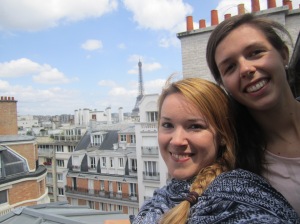What is a singer’s (as any other musician, artist) main role if not of being a vehicle for other people’s emotions, while mastering his/her ability to use his/her own in a balanced way, for that purpose?
Throughout our studies we constantly hear that we have to sing with our emotion, otherwise we are not worth the ticket price. This is, in my opinion, completely true! If art is a means of conveying otherwise unexplainable feelings and ideas, we as artists are the ones with the active role of getting it through. Alongside with the admirable way singers learn how to use their instrument, a beautifully sustained pianissimo, for example, can only happen when fueled by a deep emotion.
But what is in fact to sing with emotion? I know it seems quite obvious, but for me it was always somehow unclear, until now. Of course we all know what it means. We all have feelings and can recall them quite easily. Our life experiences are the most useful tools a singer can use, although it doesn’t mean that we have to get through every experience possible in order to portray it!
This all sounds very simple, but it is not! When we prepare our body for the singing process many things cross our mind. We usually go through our mandatory check list, for it takes a lot to produce beautiful melodies. “Remember to keep your tongue flexible, up and forward; air bubble spinning fast and free; opened ribs and don’t collapse; diaphragm flexible to carry out emotions.” This is an example of what runs through my mind immediately before singing. The reason why I left the emotion to the end is because it is the main focus and the source of energy to keep everything else in place.
But how does it actually happens? I’m sure we all have cried and laughed without realizing that we do it through our diaphragm. The “butterflies on the stomach” sensation is for me the easiest to recall and to immediately feel where the centre of my singing energy is. Call it whatever you want: frio na barriga (as we say in portuguese) or heebie-jeebies. It is all the same, and that’s what we feel every time we step out of our comfort zone: when we wait for an audition; when we are about to meet that one person; when we leave towards a new and very much expected adventure. It is our diaphragm that physically carries this sensation and that makes such a big difference once we learn how to use it in our singing.
It took me a short visit to Paris to finally understand what I’ve been struggling with for many months. After a sleepless night in a bus, Paris renewed me in many ways. It was overwhelming to be there again after some years. It felt as if it was the first time. I brushed up my french and was happy to see that it would be only a matter of time to have most of it back. There’s something about speaking another language that refreshes me, specially when it is a language I love.
Despite of all the friendly french I spent some time with, it was an australian that made the long journey completely worth it. In the middle of many important singing technique advises, it was the emotion that I finally understood how to use. I’m sure I’ve been taught most of those things before, but there’s always a right time to actually understand them. This was that time for me, and the most convenient, I dare say.
This weekend was what I really needed at the end of such a challenging year. I practiced my rusty french and left with confidence, new found motivation and goals, as well as with a deeper understanding of the french culture and of my own true voice.


